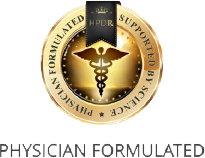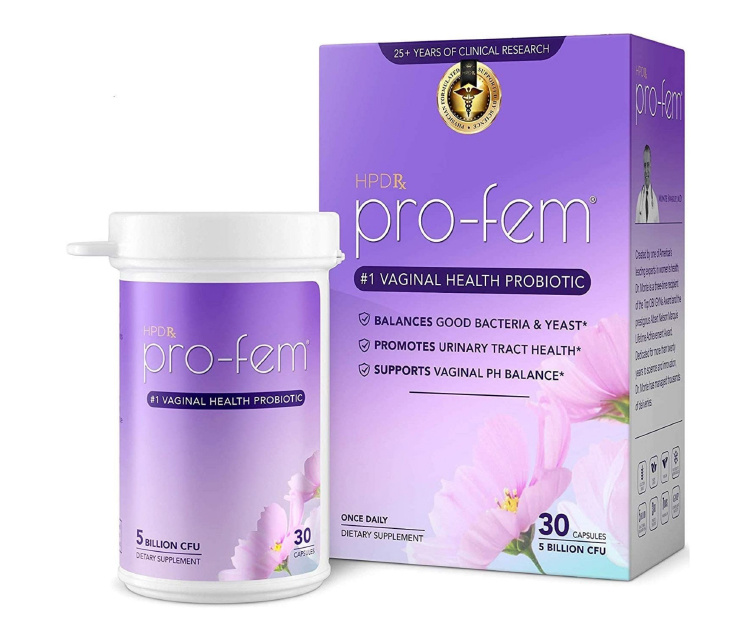Key clinical studies have demonstrated efficacy of GR-1® and RC-14® combination in numerous female specific urogenital conditions:
Urinary Tract Health
The probiotic blend has been associated with lower incidence of recurrent urinary tract infection11
Vaginal discharge and Candida (Yeast Infections)
The probiotic blend has in combination with antimycotic treatment been associated with a reduction in vaginal discharge and presence of Candida, compared to an antimycotic treatment combined with pacebo8
Healthy Vaginal Bacterial Balance
The probiotic blend, taken along with antibiotics, has been associated with a higher cure rate of bacterial infections compared to antibiotic combined with placebo1, 3, 12 Also without antibiotics, the probiotic blend has been associated with a significantly greater reduction in Nugent score compared to placebo3, 5, 10
Microbial Balances in the Vagina
Support for healthy vaginal ecosystem (via Lactobacilli recolonization)9, 12, 14
Reduced colonization of pathogenic bacteria and yeast in test subjects9, 13
Associated with Group B Streptococcus negative status in pregnant women6
Healthy Vaginal Environment
The probiotic blend supports a healthy vaginal ecosystem (via Lactobacilli recolonization)9, 12, 14 and reduced colonization of pathogenic bacteria and yeast in test subjects.9,13 Additionally, the probiotic blend has been associated with Group B Streptococcus negative status in pregnant women.6 Also, the probiotic blend has been associated with increased probability of a favorable pH3,7
Safety
The GR-1® and RC-14® strains are safe for human consumption. They have been the subject of a New Dietary Ingredient Notification, which has been accepted for filing by the US Food and Drug Administration,15 and, at the species-level, Lactobacillus rhamnosus and Lactobacillus reuteri have been granted the ‘Qualified Presumption of Safety’ status by EFSA.16
GR-1®, RC-14® and UREX™ are trademarks of Chr. Hansen A/S.
This article and page content is provided for informational purposes regarding probiotics and is not meant to suggest that any substance referenced in the article is intended to diagnose, cure, mitigate, treat, or prevent any disease.
Reference list
- Anukam K, et al. Augmentation of antimicrobial metronidazole therapy of bacterial vaginosis with oral probiotic Lactobacillus rhamnosus GR-1 and Lactobacillus reuteri RC-14: randomized, double-blind, placebo controlled trial. Microbes Infect. 2006;8(6):1450-4. (PubMed )
- Vujic G, et al. Efficacy of orally applied probiotic capsules for bacterial vaginosis and other vaginal infections: a double-blind, randomized, placebo-controlled study. Eur J Obstet Gynecol Reprod Biol. 2013;168(1):75-9. (PubMed )
- Martinez RC, et al. Improved cure of bacterial vaginosis with single dose of tinidazole (2 g), Lactobacillus rhamnosus GR-1, and Lactobacillus reuteri RC-14: a randomized, double-blind, placebo-controlled trial. Can J Microbiol. 2009;55(2):133-8. (PubMed )
- Petricevic L, et al. Randomized, double-blind, placebo-controlled study of oral lactobacilli to improve the vaginal flora of postmenopausal women. Eur J Obstet Gynecol Reprod Biol.2008;141(1):54-7. (PubMed )
- Bisanz JE, et al. A Systems Biology Approach Investigating the Effect of Probiotics on the Vaginal Microbiome and Host Responses in a Double Blind, Placebo-Controlled Clinical Trial of Post-Menopausal Women. PLoS One. 2014;9(8):e104511. (PubMed )
- Ho M, et al. Oral Lactobacillus rhamnosus GR-1 and Lactobacillus reuteri RC-14 to reduce Group B Streptococcus colonization in pregnant women: A randomized controlled trial. Taiwan J Obstet Gynecol. 2016;55(4):515-8. (PubMed )
- Hummelen R, et al. Lactobacillus rhamnosus GR-1 and L. reuteri RC-14 to prevent or cure bacterial vaginosis among women with HIV. Int J Gynaecol Obstet. 2010;111(3):245-8. (PubMed )
- Martinez RC, et al. Improved treatment of vulvovaginal candidiasis with fluconazole plus probiotic Lactobacillus rhamnosus GR-1 and Lactobacillus reuteri RC-14. Lett Appl Microbiol.2009;48(3):269-74. (PubMed )
- Reid G, et al. Oral use of Lactobacillus rhamnosus GR-1 and L. fermentum RC-14 significantly alters vaginal flora: randomized, placebo-controlled trial in 64 healthy women. FEMS Immunol Med Microbiol. 2003;35(2):131-4.(PubMed )
- Macklaim JM, et al. Changes in vaginal microbiota following antimicrobial and probiotic therapy. Microb Ecol Health Dis. 2015;26:27799-. (PubMed )
- Beerepoot MA, et al. Lactobacilli vs antibiotics to prevent urinary tract infections: a randomized, double-blind, noninferiority trial in postmenopausal women. Arch Intern Med. 2012;172(9):704-12. (PubMed )
- Anukam KC, et al. Clinical study comparing probiotic Lactobacillus GR-1 and RC-14 with metronidazole vaginal gel to treat symptomatic bacterial vaginosis. Microbes Infect. 2006;8(12-13):2772-6. (PubMed )
- Cianci A, et al. [Efficacy of Lactobacillus Rhamnosus GR-1 and of Lactobacillus Reuteri RC-14 in the treatment and prevention of vaginoses and bacterial vaginitis relapses]. Minerva Ginecol. 2008;60(5):369-76. (PubMed )
- Reid G, et al. Probiotic Lactobacillus dose required to restore and maintain a normal vaginal flora. FEMS Immunol Med Microbiol. 2001;32(1):37-41. (PubMed )
- GR-1® and RC-14® were filed under NDIN 488 by the US FDA on March 3, 2008.
- EFSA Panel on Biological Hazards, et al. Update of the list of QPS-recommended biological agents intentionally added to food or feed as notified to EFSA 7: suitability of taxonomic units notified to EFSA until September 2017. EFSA Journal. 2018;16(1):e05131




